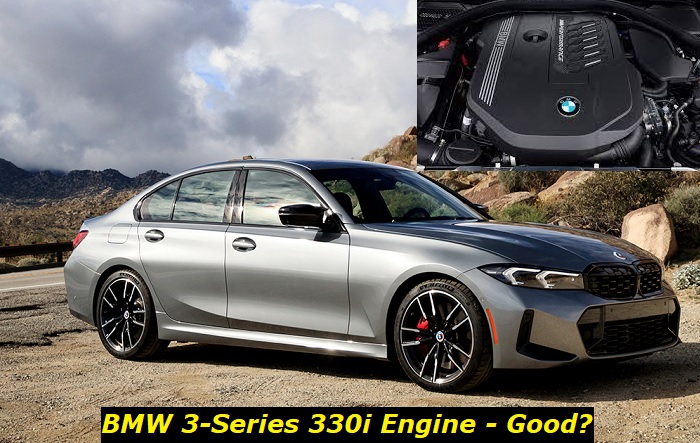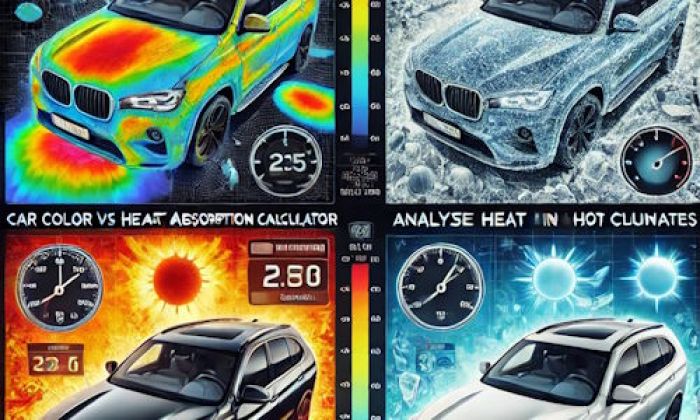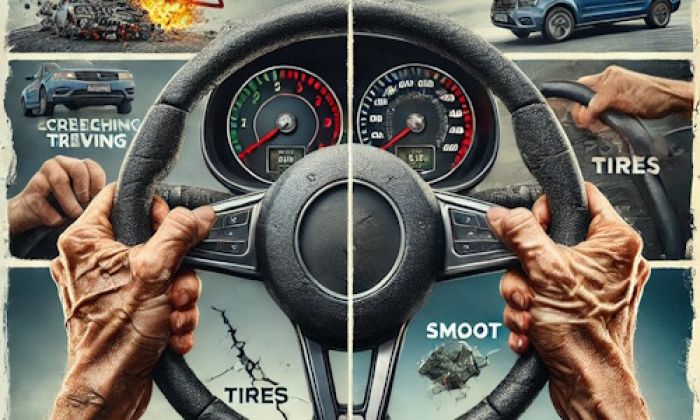Almost all car manufacturers abandon their sedan projects and turn to SUVs making electric vehicles their first priority. BMW also cares about the EV revolution and offers great new all-electric models. But BMW also understands that it's now the best time to earn money for someone who still wants a fuel-powered car. And the 3-Series is one of the few still surviving compact sedan cars in the luxury class.
Today, I want to tell you about the base engine of the BMW 3-Series in the US - the 2.0L Turbo engine in the 330i version that is essentially the B48 engine. I will look at its durability, common issues, and also some important features that you should know before buying this vehicle.

Key facts and my opinion about the engine
- Production years: 2014-now
- Average lifespan of B48: 140,000-160,000 miles
- Fuel supply type: direct injection
- Power range: 156-306 hp
- Fuel efficiency: good
- Engine block material: aluminum
- Engine reliability score: low
- The most common problems: intensive oil consumption, poor balance shaft bearings, very demanding to oil quality
Key features of the BMW 3-Series base engine (330i)
So, the new 3-Series offers 3 versions in the US now. The base 330i comes equipped with the 2-liter turbocharged B48 engine while there are also a plug-in hybrid version called 330e and the performance model M340i. I will try to find time and opportunity to describe all engines in the 3-Series, but today I will only pay attention to the base version - the 330i.
So, the B48 engine is a living legend now and it has been manufactured in Germany since 2014. It has two versions of displacement and literally dozens of modifications. And this engine was used in so many BMW cars that I will not even try to list them here. This engine replaced the super-legendary N20 model.
Here's what you may want to know about this engine:
- this is the 2-liter 4-cylinder 16-valve turbocharged engine that produces 255 horsepower and 294 lb-ft of torque - quite a lot for its size;
- this is the direct-injection engine that has the twin-scroll efficient turbocharger which has a separate cooling system and even a separate pump;
- the engine is equipped with the Double VANOS valve timing system and Valvetronic that ensures variable valve lift;
- the timing system is driven by a chain, the block, and the head are made of aluminum and the cylinders have a special coating for longer life;
- there is an intercooler in the intake manifold which is a pretty unusual decision;
- the thermostat is "clever" - it may change its positions flexibly ensuring the best temperature management;
- the engine is equipped with the 8-speed automatic transmission - a really not bad unit with great efficiency;
- the 3-Series 330i may go about 25 MPG in the city and 34 MPG on highways which is not that bad for a non-hybrid vehicle.
Well, the engine seems to be quite great for this car. It's powerful, very technological as expected from BMW, really fuel-efficient, and also fun to drive. What else do you need from a well-researched and studied engine under the hood of the luxury compact sedan?
But things are not as bright as you may think and this engine, like any other machine in the world, has some disadvantages that I want to tell you about. Although I really love the BMW 3-Series 330i engine, I still need to keep more realistic and unbiased in my reviews, so let's go on with some bad things you may encounter in this engine.
How many miles will the 330i engine last?
The B48 engine in this version will last about 170,000 miles if maintained well and not killed by your driving style.
The key feature is that this lifespan is only achievable if you don't abuse the engine and keep maintaining it with good oil and high-quality parts during its life. I've seen B48 engines falling apart at 40,000 miles and even earlier without any chance to repair them because of abusive driving.
But this is why you probably want to invest money in BMW! So, I would reduce the average lifespan of the engine to a more realistic 150,000 miles and this doesn't seem that great in comparison with the Mercedes-Benz C-Class, for example.
Though, the transmission will not be the reason for your disappointment. It's going to go as long as the engine and will need only several oil changes during its life. The 8-speed transmission seems to be the best piece of technology in your new 3-Series.
You may ask why my estimated longevity for this 2.0L Turbo engine is so small. Because the engine has a very suspicious thermostat, its Double VANOS is going to double-get on your nerves, the valves are going to be clogged with carbon, etc. Let's just look at the common problems and you will understand everything.
What are the common issues with the BMW 2.0L Turbo engine in the 3-Series
So, the 3-Series B48 engine doesn't seem to be super-problematic but I still can't say it's the most reliable BMW engine I've ever seen. I would love to see diesel engines in American BMW - they are much more durable and interesting to own. Although the gas engine still has its advantages, it also has a lot of minor and major problems that can even kill it under some circumstances.
Here are some common issues with the B48 engine in the BMW 3-Series:
1. Valve seals aren't durable at all
Valve seals in these engines start leaking at about 70,000 miles and the progressive oil consumption begins. At 130,000 miles, you will seriously think about changing the valve seals to avoid growing oil burn. But this is not a cheap procedure. Oil consumption goes to a fatal level when the engine approaches 170,000 miles and at this point, the engine may die or will need quite expensive repairs with the replacement of piston rings and valve seals.
2. Problem with idling RPM
There are basically two common problems that will cause idling RPM to go up and down. The first one is the fuel tank air valve and the second one is the issue with the throttle body. Also, this is a direct injection engine, so its intake valves will develop some carbon buildup and you will need to clean the valves from time to time. This may also cause uneven RPM when idling.
But I should say that this issue doesn't cost too much to address and also it doesn't kill the engine - you may keep driving if you notice the unstable RPM at idle.
3. Balance shaft problems
In 2019, there was a recall for these engines and the problem was with the bearings of the balance shafts. I suppose the problem is still there even in new engines because there are several reports in Europe about the balance shaft problems. You should keep this in mind and maybe find that recall and show it to your dealer if there is a problem with the balance shafts in your 3-Series engine.
4. Turbo failure
Unfortunately, the separate cooling system didn't help to preserve the turbocharger from premature death. While you are using the OEM oil and filters, the problem is not likely to appear. But once something changes in the quality of maintenance, and usually this happens when the warranty period is over, you will start getting problems.
The engine is super-sensitive to the quality of oil, and the turbocharger may quickly overheat once it's not lubricated correctly. This leads to the quick death of the twin-scroll turbo that may cost you a fortune to replace or repair.
5. Other major issues
This engine is prone to overheating at high mileage because of the very tricky thermostat. It doesn't mean that all engines will overheat, but some of them certainly will. This may lead to several unpleasant issues and even to the sudden death of the engine when you rotate it over 5,000 RPM.
Also, low oil levels may easily kill the engine and you will see the oil pressure warning light on the dash when it's too late. If you see this light turning on, just stop the vehicle and turn off the engine until you find a way to add some oil.
How can you prolong the life of the 3-Series 330i engine?
The recommendations for longer life of the B48 engine are pretty simple and checked by millions of owners:
- change oil slightly earlier than the manufacturer recommends;
- use OEM oil and filters;
- replace the timing chain at about 90,000 miles to avoid its failure;
- pay attention to the health of the turbocharger;
- avoid overheating the engine;
- if you want to drive it like a sports car, buy the M340i version with a tougher engine.
The recommendations may seem simple but not many drivers will actually follow them. Also, the new BMW 3-Series shouldn't be driven if there is something wrong with the engine. Even a minor problem can quickly grow into a fatal issue and kill this unit.
Overall, I love the B48 engine and especially the version that is used for the new BMW 3-Series. It's more or less durable, very powerful, pretty economical, and much more reliable than many other BMW engines.
About the authors
The CarAraC research team is composed of seasoned auto mechanics and automotive industry professionals, including individuals with advanced degrees and certifications in their field. Our team members boast prestigious credentials, reflecting their extensive knowledge and skills. These qualifications include: IMI: Institute of the Motor Industry, ASE-Certified Master Automobile Technicians; Coventry University, Graduate of MA in Automotive Journalism; Politecnico di Torino, Italy, MS Automotive Engineering; Ss. Cyril and Methodius University in Skopje, Mechanical University in Skopje; TOC Automotive College; DHA Suffa University, Department of Mechanical Engineering






Add comment